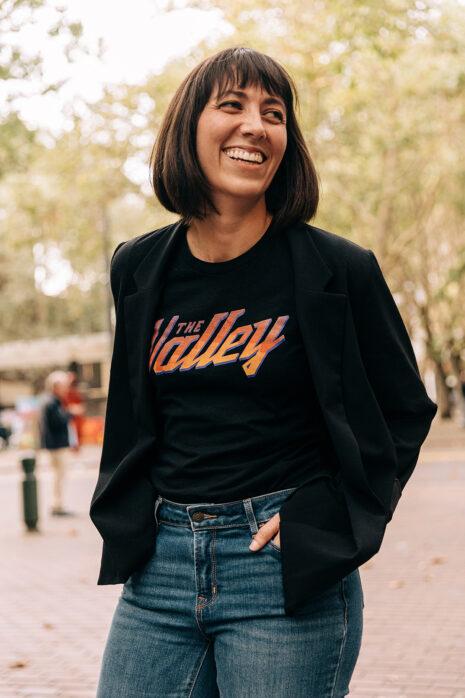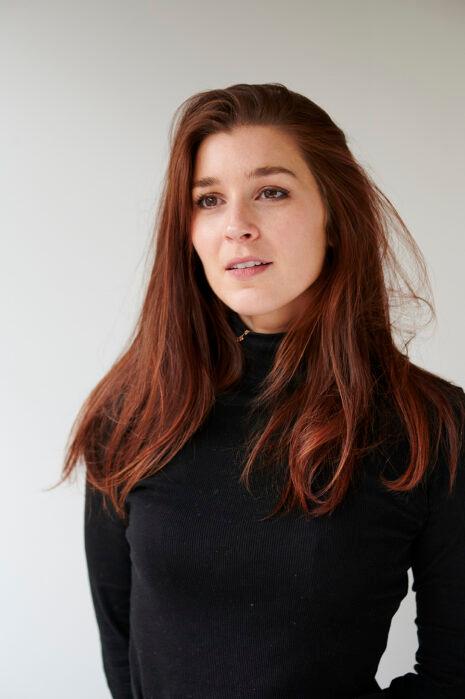What roles does sustainability play at Modulous?
Chris: When we first started Modulous, sustainability played a founding and central role in what we set out to achieve. While we had this guiding principle, it came to life when Ajay joined us and started to shape and author our Sustainability Strategy. From here, sustainability began to touch all aspects of Modulous, from operations to design to product to procurement. It’s really a global function.
How did you each get started in building and design?
Ajay: I trained as an architect in India and after practicing for a few years there, I realized that a project’s environmental context is very important. But I felt that I lacked a bit of knowledge and skills to do a proper job at planning for climate when designing a building. So, I first went to ETH Zurich where I did a Master’s in Environmental Design and then came to UK, where I worked initially for a couple of architecture practices in London. And then I moved to an engineering consultancy, which specialized in how to create buildings that were sensitive and responsive to the local environment.
Chris: I went to university for mechanical engineering because it’s a versatile degree and frankly as a 17 year old I didn’t know what I wanted to do, so I was after options. I ended up focusing my studies mainly on machinery design but happened to take a few electives my last year in building services. After several internships, I realized what I didn’t want to do and that was designing widgets that went in some big machine. I was a bit aimless and was trying to figure out how to use my degree while having a positive impact on the world. Then one day, I was chatting with an architect friend who suggested that with my mechanical engineering background, I might look into architectural engineering. I did and the idea of helping shape the built environment while working towards a sustainable future really appealed to me, so I begged and borrowed and stole my way into my first designer gig in Philadelphia. I cut my teeth there and have advanced in the field, particularly by working with progressive and innovative firms.
What’s exciting about Modulous that made you join the company?
Chris: In 2017, I was done with ego projects. And by that, I mean projects driven by the ego of clients looking for the status of developing some sort of a sustainability jewel, and my own ego by working with high profile clients and architects. I wanted to get back to the reason I got into this industry, and that was to be a positive influence. For me, that meant having a positive impact on the day-to-day lives of the many people who can be served with a single building. I started to think about the housing shortage and how to incorporate low-energy design, digitizing what we can do, and just started trying to create something that was new and interesting and had a value to society.
Ajay: Chris just told my story! I also did consulting for about 13 years as a sustainability environmental designer and sustainability consultant. But when I paused to evaluate what I had achieved, I was quite surprised that there were only a handful of jobs where I felt I really made a difference. A lot of the projects were vanity projects with respect to private or personal lifestyle choices. I felt that there could be better ways to spend my time. The first person I contacted was Chris, and when he told me about Modulous, I got very excited.
Chris: I want to be clear that in our work in sustainable design, I wasn’t looking for somebody like Ajay. I was looking for Ajay. The timing worked out perfectly.
Ajay: I think what I like most about the company is that there’s a genuine commitment to deliver a solution not just tailored to people who have money, but to lots of people who would not be able to afford the process to create such high-quality housing. This was a real opportunity for me to do what I had set out to do many years ago.
Chris: That’s a really important point. We don’t just want to provide a home to the client, we want to provide high-quality housing that’s accessible. With Modulous, we get to drive that work rather than wait for a client to come to us with something interesting.
Tell us about Modulous’ vision for building houses in the near term—and also in the long term?
Ajay: Modulous’ core mission is to be a force for good. At a basic level that means delivering housing solutions that are good for people and the environment. We look at sustainability in a very holistic way. It is not just about energy efficiency or using low carbon materials. Our focus is to create homes that offer healthy spaces for their occupants and for people of all ability levels. Through that, we want to create and promote social equality, to promote the idea that anyone can have a good-quality home that is affordable to buy and maintain.
Chris: The operative word here is ‘enable’. Modulous is built to enable the delivery of sustainable homes globally. We’re doing that through two product lines. One’s a physical product of a home and the other is the digital product line we’re building, which includes our automatic design and feasibility software. Just one of those product lines is powerful, but when you put both together, we take vastly bigger steps toward a more sustainable future.
What’s wrong with the way housing is built today and how should it be built in the future?
Chris: Currently, there’s a market focus on commercial delivery. That can marginalize the sustainable intent of a building. But these are important factors we can’t ignore. We should be able to provide a home that is healthy for someone to live in that also uses resources efficiently. You should be able to expect a home free of toxic materials that also performs well. We should be thinking about the impact of our supply chains and the full impact of construction including things like transportation and we should be making better decisions from this more holistic viewpoint. But often those things get swept aside. Construction is an industry that does things the way they’ve always been done. It historically didn’t innovate quickly. But we’re seeing that change.
So what is Modulous doing to enable this future?
Ajay: We have four major pillars that guide our work. They are 1) creating healthy homes, 2) using resources efficiently, 3) promoting social equality, and 4) building communities. We give equal emphasis to all four of them. In practice, that means we’ve built a digital platform to enable the delivery of sustainable homes around the world. That’s very broad, but every client has specific needs, things like budgets, profitability, and schedule, and ultimate use. So essentially, you set your priorities and the software takes you through a series of choices to design the most optimal home that delivers on our four principles. That’s the first stage.
The second stage is when you start physically building. That’s where our proprietary Kit of Parts comes in. We work with a small group of suppliers who manufacture and procure the components that together to form our KoP, and our licensed assembly partners assemble the Kit to construct the final physical product. The final piece is to leverage our relationships with social equality groups and communities to combine each of these buildings into a holistic community.
Chris: To Ajay’s point, I think it’s important to understand that in addition to innovating the process of building homes, we’re also building an ecosystem of partnerships with ambitious people who have the right ideas going forward.
How do you measure success meeting so many goals?
Ajay: Some metrics require third party verification. So, for example, one of our goals is to create healthy homes. How do you prove a home is healthy? We are proposing to answer that using WELL Building certification. For building communities, we are using BREEAM Communities, which is a UK/Europe appropriate scheme. And for projects in North America, we are proposing to use the LEED Neighborhood Development certification process. These are well recognized schemes in Europe and in the U.S. We’re baking those requirements into our digital and physical products so that we enable clients to deliver healthy and community focused projects when they use our product stack.
Chris: It’s crucial to reiterate here that to pull this off, we need to work with our ecosystem and supply chain partners. We need them to do a lot of heavy lifting on their supply chain. We realize it’s a huge ambition that will only be successful if our supply chain partners come along with us.
What are the obstacles standing in the way of Modulous and other building innovators?
Chris: There are a lot of factors at play. There’s the global housing shortage, sustainability, health and wellness. It’s great to say you want to do all, but the market makes choices. So, if it’s housing shortages, a lot of attention gets pushed towards that. And unfortunately, a lot of it is also politicized. It depends on the local political landscape and local incentives. It’s a lot to try to balance all these components.
Ajay: I want to add one additional point. Sustainability is often seen as an added cost but not added value, so a lot of times it gets left out. We’re working to prove that wrong. This gets at the question of whose job it is to make these changes. Is it the consumer? Is it developers? The government? We really need a long-term vision by government agencies at every level—state, local, regional—if we want to get to mass adoption. Without a long-term vision, people resort to the short-term view. That’s one of the biggest challenges.
How will you get builders to think of sustainability differently?
Ajay: Developers tend to be risk averse on sustainability matters. They wonder how much it’s going to cost them, and how much value it will add. You can get a sustainability consultant to run all these numbers, but that all takes time and money, which doesn’t work for developers that normally borrow money at high interest rates. They don’t have the luxury of time. But we’re changing that. Our product delivers cost information in real time as you make decisions, and people I’ve spoken to in the construction industry really appreciate that. They can easily see their return on investment.
Chris: Time is a crucial factor here. Building takes a lot of time. The beauty in what we’re creating is how we’re shrinking that time. Instead of months and months of decision making, in real time we can go, okay, you don’t want to try that, let’s test this instead. Let’s see how the cost changes this way or that. Say you want to focus more on health and wellness, well here are the implications. That time savings is gold to decision makers.
What are your long-term goals for Modulous?
Chris: We have many. Our top goal is we want to be net zero for Scope 1, 2 and 3 carbon emissions by 2030. That’s not even long term—that’s eight years from now. But that’s our ambitious aim. Beyond that, we want to solve the housing crisis and help address climate change through buildings. It’s important to us that our products have a positive contribution rather than creating waste and pollution.
Ajay: The idea is to become climate change positive. And to me, that doesn’t mean to do something that’s just less bad than what we’re doing now. We must go further than that. We would like to see a modular development reflect the concept of a cherry tree, where any waste that the tree creates becomes food for other organisms, or gives you enjoyment, or gives you shelter. The cherry tree nourishes, it provides shelter, but it also gives you a lot of visual interest. That’s a primary vision for Modulus.
What kind of candidates are you looking for to build your team?
Chris: We’re hiring in our sustainability group now across two countries, but also across multiple disciplines. We need folks that are concerned about climate across everything. And it’s ok if they don’t have sustainability consultant or sustainability designer on their CV. They’ll be working on our physical product team and our technology team and our data team.
As we’ve grown from a handful of people to the team that we have now across multiple continents, it’s deeply important to us to maintain our core values, the four pillars we spoke about earlier. Those values really permeate the work of the entire company, starting with our founders to everyone else. Everyone is committed to sustainability and health and wellness. It’s one of our core business drivers. It’s not an add-on.
What advice do you have for young people who are just entering the building industry and who are concerned about climate?
Chris: Ask a lot of questions. Ask why things are done the way they are. Usually in our industry, the answer’s because that’s the way they’ve always been done. The more we can question things, the more opportunity there is for innovation. Beyond that, I would say to reach out and try to create deep networks. That’s a generic piece of advice, but it really helps. Being able to put yourself into positions of talking to influential people is such a great skill set and tool. And the last thing is to not settle for the status quo. If you find yourself in an organization that’s very traditional and you want to do something more innovative, there are dozens of companies chomping at the bit to have smart, talented folks wanting to do something different. We’re one of them.
Ajay: My only other piece of advice would be to persevere. There is a lot of negativity out there, but every young person should feel that they can make a change. There are loads of examples of how young people’s voices are getting heard. So they should believe in themselves and find areas of work that interest them and use that as an instrument to make positive change.



